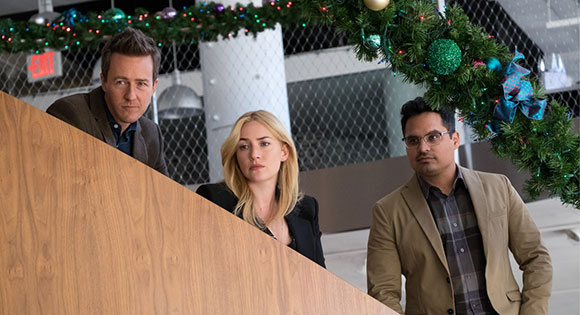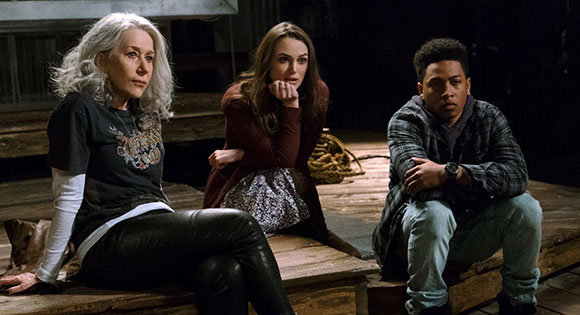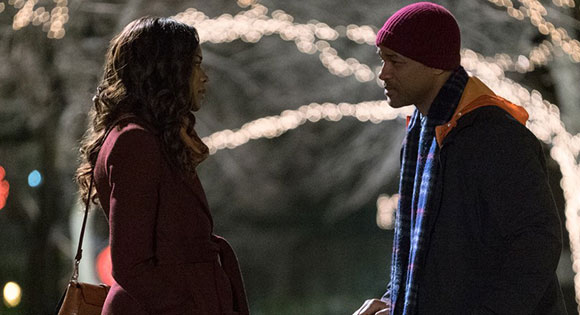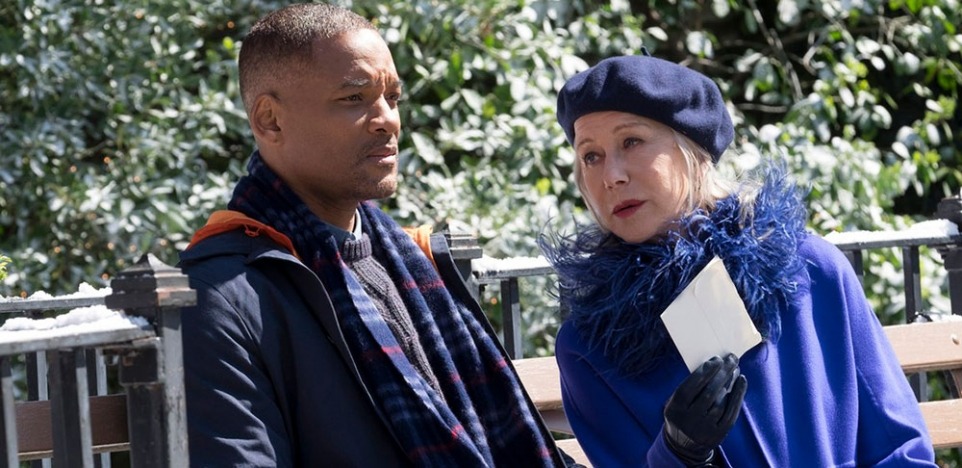Parents who survive the death of a child are often suspended in limbo; they are not the persons they used to be and they don't know when or how they will be able to forge a new identity. Similar to the victims of war and national disasters, they find themselves in a state of chaos where nothing will ever be the same again. Shock has rearranged their lives and separated them from the everyday life they've known. Words evaporate in the presence of the pain of grief.
So it is with Howard (Will Smith), the president of a successful advertising company which is about to be acquired, a move that will secure their future and bring in enough money to enable the employees to live happily ever after. If, and this seems to be a big if, Howard as the major shareholder agrees.

Howard is still in deep mourning over the death of his six-year-old daughter two years ago. He comes to the office but doesn't attend meetings; instead he spends his time building and knocking down domino trails. Some nights he puts himself in danger by riding his bike straight into oncoming traffic.
Whit Yardsham (Edward Norton), co-owner of the firm, Claire Wilson (Kate Winslet), a hard-working single woman who has been with the company for 25 years, and Simon Scott (Michael Peña), a key executive who is bearing his own burden, decide to do something to save the company they have devoted so much time and energy to keep going. They hire a private detective to follow Howard and gather evidence they can use to prove he is not competent to make a decision.

She discovers the oddest aspect of his grieving process. He is writing letters to Love, Time, and Death in which he expresses his feelings of anger, dismay, fear, and futility. His decision to write to these universal principles is not surprising. Early in the film, addressing his workers, he suggests they are what connect every human on Earth: "We long for love, we wish we had more time, and we fear death."
Howard's co-workers decide that they need to try to reach him where he is. So they hire three actors to play incarnations of Death (Helen Mirren), Love (Keira Knightley), and Time (Jacob Latimore). With varying degrees of success, they try to answer the questions he's raised in his letters. Death wants him to really face what has happened. Time tells him to see him as a gift that he's wasting. Love, the most convincing of all, tells him that she is in everything, including the pain he is feeling. Confused about what these strange appearances mean, and almost ready to seek help, Howard attends a support group led Madeline (Naomie Harris) for those who have lost a child.

David Frankel directs Collateral Beauty from a screenplay written by Allan Loeb. The performances are all excellent, especially Will Smith and Naomie Harris. Most notable about the film is its multilayered exploration of grief. In many dramas we have seen about grief, the filmmakers lack the patience to stick with the dark side of incredible loss. Not so with Collateral Beauty. Like Howard, the film holds on to grief until a whole rainbow of emotions – collateral beauty -- come up around it.
One thing is left ambiguous in the film's satisfying ending. Are Death, Love, and Time hired actors or figments of Howard's imagination? Or are they angels who have come to free him from his depression and self-destruction? Decide for yourself, but as you consider the possibilities, it might be helpful to consider the role of angels in the spiritual traditions.

Angels perform a variety of functions. They are heavenly beings, spiritual messengers, and ministers of grace. They may come to protect people or to intervene when they are in trouble. Some people view them as incorporeal, disembodied spirits; others see them as white-robed, winged figures. The poet and visionary William Blake saw angels in trees; Jacob wrestled with an angel; Joseph Smith founded the Mormon Church after a meeting with the angel Moroni.
In The Angelic Way, Rami Shapiro states that angels are aspects of our own consciousness and symbols of our capacity for self-improvement. They are not physical but imaginative faculties. Or to put it another way, Angels are complements to humanity. They call us to a great spiritual adventure — to move from our limited ego-centered consciousness to unlimited divine consciousness.
Viewed this way, stories of angelic visitations are signs that God and humanity are wed to each other – another way to express the film's theme that "We are all connected."
